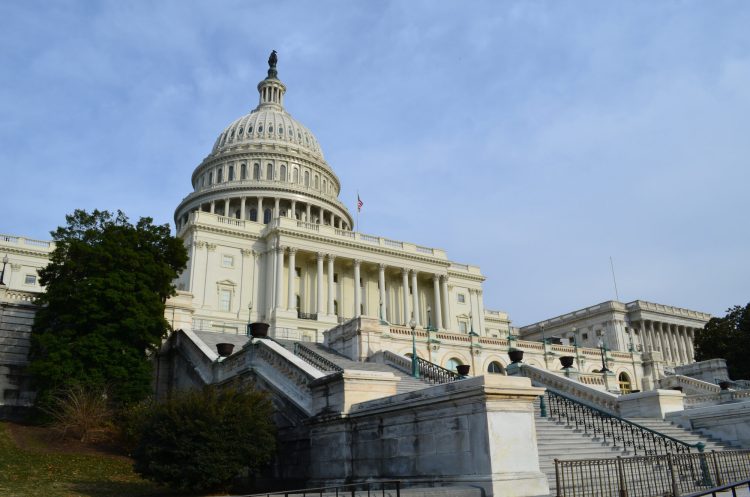This op-ed, written by Concord Coalition Co-Chair Bob Kerrey and Alan K. Simpson, co-founder of Fix the Debt, appeared in The Philadelphia Inquirer and on Philly.com. The former senators shared Concord’s Economic Patriot Award in 1996.
This op-ed, written by Concord Coalition Co-Chair Bob Kerrey and Alan K. Simpson, co-founder of Fix the Debt, appeared in The Philadelphia Inquirer and on Philly.com. The former senators shared Concord’s Economic Patriot Award in 1996.
There is a strong bipartisan consensus that the tax code is badly in need of reform. The current system’s haphazard array of $1.6 trillion in annual deductions, credits, exclusions, exemptions, and special rates — all known as “tax expenditures” – or to the layman simply “loopholes” — drains revenues, adds complexity, and distorts economic incentives.
Having served on the Senate Finance Committee, we know the perils of trying to reform this complex maze. So we assess the current effort with an appreciation of the difficult trade-offs involved. We also accept the good-faith desire of current congressional members to create a tax code that is simpler and more conducive to long-term economic growth.
There is, however, a fundamental flaw in the House and Senate bills now being negotiated that we believe would undermine the long-term economic growth they seek to achieve. Put simply, they rely too heavily on budget gimmicks and additional federal debt.
At the heart of the problem is a familiar Washington story: The political appetite for popular things, like tax cuts, far exceeds the appetite for unpopular things, like closing these loopholes to which people and businesses have become accustomed.
In this current case, the tax cuts outweigh the offsets by more than a trillion dollars even accounting for added economic growth, according to the nonpartisan Joint Committee on Taxation. That gap, which would be added to the debt, is very troubling, particularly when there is no corresponding enthusiasm on Capitol Hill for additional revenue.
After all, the debt is already higher as a share of the economy than at any time since the end of World War II and is projected to continue growing at an unsustainable pace. Washington is good at generating debt. If that were the key to economic prosperity, happy days would be here again.
We do need tax reform. We do not, however, need more debt. And we certainly don’t need more debt to get good tax reform.
If the aim of tax reform is to set our economy on a higher growth path, then deficit-financed tax cuts are counterproductive. The debt overhang would undermine, or even eliminate, the long-term growth that might otherwise result from tax reform.
Rate cuts and limited base-broadening might provide a temporary boost in economic growth, but this effect would soon fade as the downside of added debt kicks in.
The only way to get around this is by assuming, in effect, that “deficits don’t matter,” that we can get all of the benefits of cutting taxes with none of the downside of added debt. This would be contrary to all economic reality and theory.
It’s one thing to assume some modest economic kick from a tax cut but quite another to make the rosy assumption that tax cuts pay for themselves or come anywhere close. Ultimately, the growth potential from tax reform must come from the way in which reform improves economic incentives and not from any short-term deficit-financed adrenaline shot.
Even the extent of a short-term boost is questionable due to current economic circumstances. The economy is growing, unemployment is low, and corporate profits are high. If anything, these favorable circumstances call for a serious effort at deficit reduction rather than a gamble on Hail Mary economics.
Another drawback to the debt overhang is that it forces a blatant budget gimmick.
The Senate plans to pass the tax bill through a special process called “reconciliation.” This process can get around a Senate filibuster and allows a bill to pass with 51 votes, including the vice president’s. Reconciliation also prevents any such bill from increasing the deficit beyond the next 10 years.
To avoid this obstacle, Senate leaders have included a massive “sunset” of the individual (not corporate) tax cuts after 2025. This makes no sense as tax policy and it is used solely to game the budget rules. It would also set up a new “fiscal cliff” that harms potential economic growth by fostering uncertainty.
Even the supposedly “permanent” corporate provisions would be at risk when the fiscal cliff arrives because then a future Congress and president could decide to offset extension of the individual provisions by scaling back the corporate provisions.
It is also possible, as some proponents have suggested, that the sunsets in the tax bill could simply be removed in 2025 without any offsets. If that’s the intention the real deficit increase of the legislation is much higher than advertised by several hundred billion dollars.
A better course of action now would be to scale back the size of the tax cuts or eliminate more tax expenditures so that the bill can be fully paid for without gimmicks. If that commitment were made, it might then be possible to attract some bipartisan support, which is always the best result when enacting such consequential legislation.
This may take a little longer but it would be better economic policy, better fiscal policy, and better tax policy.
Bob Kerrey, a former governor and Democratic senator from Nebraska, serves as a co-chair of The Concord Coalition. Alan K. Simpson, a former Republican senator from Wyoming, is co-founder of the Campaign to Fix the Debt.
Continue Reading

